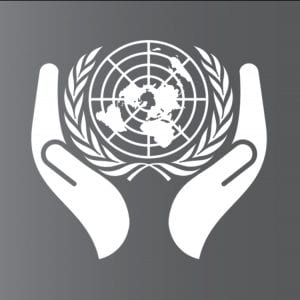Global Vincentian Family
Did you know that over 300 religious and lay organizations across the world are considered part of the “Vincentian Family?” A movement that started in countryside churches in France has spread for 400 years and is now present in over 100 countries across all six habited continents. There are over 4,000 Vincentian priests across the world1, 14,000 Daughters of Charity serve in almost 100 countries2, and the Society of St. Vincent de Paul has over 1,500,000 volunteers worldwide.3
DePaul University is just one of the many branches of the Vincentian Family Tree. Other branches include the Sisters of Charity of Miyazaki in Japan, the Conference of Frederic Ozanam for Youth in Chile, Adamson University in the Philippines, the Daughters of Devine Love in Nigeria, and the Servants of the Poor in Portugal, to name a few.4 Over the last 400 years, these religious orders and lay organizations have grown and spread out across the globe addressing the specific needs of the communities they serve. While there are differences across these branches of the Vincentian Family, they can all trace their roots back to Vincent de Paul and Louise de Marillac.
A Legacy of Advocacy
While the Vincentian Family may be more well known for its ministries that directly serve those on the margins, we also have a long, storied tradition of working towards systemic change and advocating with those we serve. Vincent de Paul used his power and relationships with the nobility in France to connect resources to the most marginalized. In forming the Congregation of the Mission he worked from within to reform a corrupt Catholic Church.
Our Vincentian tradition shows us that, “effective charity requires attention to justice and engagement with our social reality. True justice requires that charity must care for those […] passed over and unseen by the dominant culture.”5
In the late-19th Century, the Daughters of Charity in Los Angeles, California helped secure proper funding for healthcare access in minority communities during smallpox epidemics. Mexican, Native American, and Asian communities did not trust the local government to supply adequate healthcare in the times of the epidemics, but the Daughters of Charity used a combination of direct service and advocacy to serve those communities.
“In Los Angeles, the Daughters of Charity stepped to the fore to provide service during the smallpox epidemics. Their reputation for kind, caring, and effective nursing encouraged sick Angelenos to enter the quarantine hospital, isolating patients and hopefully retarding the spread of the disease. In knowing city officials needed them, the sisters utilized their political leverage to provide the best care possible, insisting that the city improve conditions in the [quarantine hospitals] and grant adequate funding for the sick poor.”6
As Fr. Edward Udovic notes, “whether in the seventeenth or twenty-first centuries, Vincentians have understood that some form of organized local, national, and international political advocacy for specific systemic poverty reduction efforts has to be incorporated into their efforts.”7 Whether we are working at the United Nations to end homelessness or pushing for education reform at the Chicago Board of Education, advocating for social justice with those on the margins remains a core tenet of the Vincentian mission.
1 https://cmglobal.org/en-archive/home/
2 https://daughtersofcharity.org/about-us/international-community/
3 https://www.ssvpglobal.org/about-us/
4 McNeil, Betty Ann D.C., “The Vincentian Family Tree: A Genealogical Study” (1996). Vincentian Digital Books. 6. https://via.library.depaul.edu/vincentian_ebooks/6
5 Clark, Meghan J. Ph.D. (2012) “The Complex but Necessary Union of Charity and Justice: Insights from the Vincentian Tradition for Contemporary Catholic Social Teaching,” Vincentian Heritage Journal: Vol. 31 : Iss. 2 , Article 1. Available at: https://via.library.depaul.edu/vhj/vol31/iss2/1
6 Gunnell, Kristine Ashton Ph.D. (2011) “Sisters and Smallpox: The Daughters of Charity as Advocates For the Sick Poor in Nineteenth-Century Los Angeles,” Vincentian Heritage Journal: Vol. 30 : Iss. 2 , Article 1. Available at: https://via.library.depaul.edu/vhj/vol30/iss2/
7 Udovic, Edward R. C.M., Ph.D. (2008) “”Our good will and honest efforts.” Vincentian Perspectives on Poverty Reduction Efforts,” Vincentian Heritage Journal: Vol. 28 : Iss. 2 , Article 5. Available at: https://via.library.depaul.edu/vhj/vol28/iss2/5
